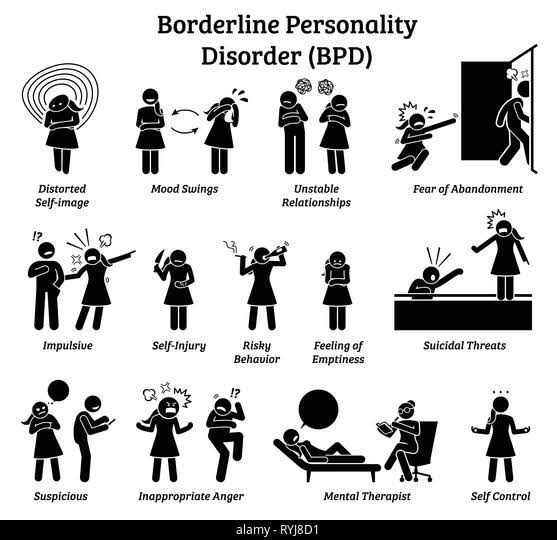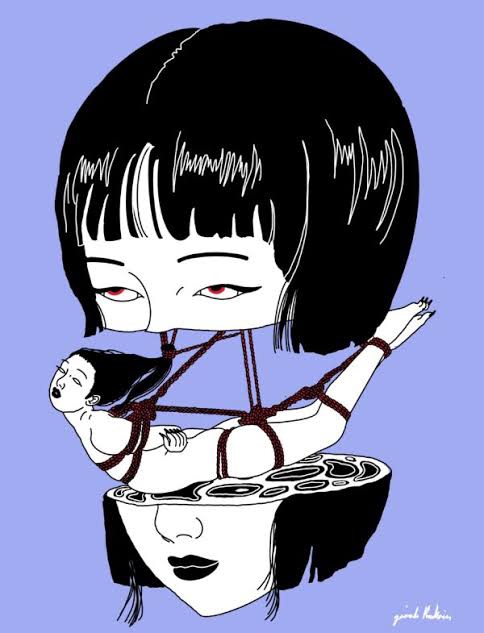Borderline personality disorder is a disorder mostly associated with how you react with people and how you deal with yourself and your own emotions. It’s a personality disorder not a mental disorder which a lot of people get confused with. This disorder shapes the mentality of a normal person, it develops their brains into a very different type that makes them relate less and less everyday to their actual friends, family and partners. People think it’s a normal disorder that’s easily controlled but it’s really hard to deal with. It cages you into this loop of not being aware of why you do what you do.

The symptoms are according to NHS:
• emotional instability – the psychological term for this is “affective dysregulation”
• disturbed patterns of thinking or perception – “cognitive distortions” or “perceptual distortions”
• impulsive behavior
• intense but unstable relationships with others
If you have bpd you may experience a range of feelings that sums up to rage, sorrow, panic and terror. These emotions are all a great factor in leading to actions that may or may not ruin that person’s life. Adding the unstable mood swings that can change in a span of minutes. And these changes lead to impulsive behaviors that may lead to self harm while that person is not even suicidal. According to NHs a person may have a Disturbed patterns of thinking
Different types of thoughts can affect people with BPD, including:
• upsetting thoughts – such as thinking you’re a terrible person or feeling you do not exist. You may not be sure of these thoughts and may seek reassurance that they’re not true
• brief episodes of strange experiences – such as hearing voices outside your head for minutes at a time. These may often feel like instructions to harm yourself or others. You may or may not be certain whether these are real
• prolonged episodes of abnormal experiences – where you might experience both hallucinations (voices outside your head) and distressing beliefs that no one can talk you out of (such as believing your family are secretly trying to kill you)
These thoughts are really harming so if you’re dealing with any of these hallucinations please seek immediate help.

When people fear abandonment, it can lead to feelings of intense anxiety and anger. You may make frantic efforts to prevent being left alone, such as:
• constantly texting or phoning a person
• suddenly calling that person in the middle of the night
• physically clinging on to that person and refusing to let go
• making threats to harm or kill yourself if that person ever leaves you
Bpd is a disorder that makes you feel like you’re stuck between the border of black and white. It’s like a love-hate relationship between a person and themselves. Leading to that someone wrote a letter about their borderline and it could really explain more.
Here’s an article about the cases of bpd that also can help you understand such a disorder more.
https://jdc.jefferson.edu/cgi/viewcontent.cgi?article=1154&context=jeffjpsychiatry
To conclude, Bpd is hard to deal with, so before judging bpd patients or ex survivors, try to understand it more, because its so unpredictable and complicated and needs real care.













